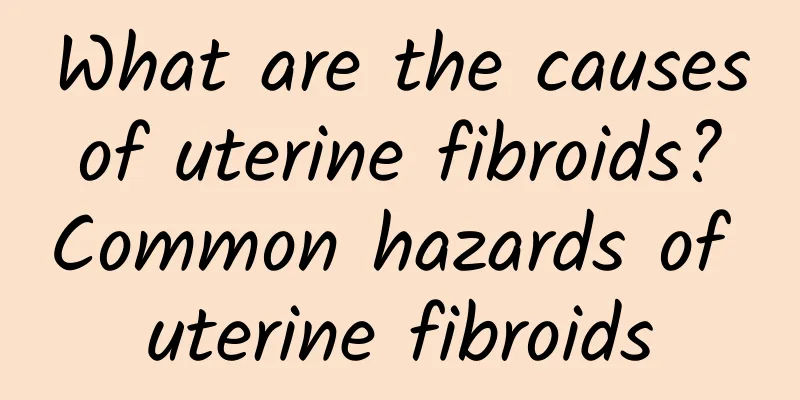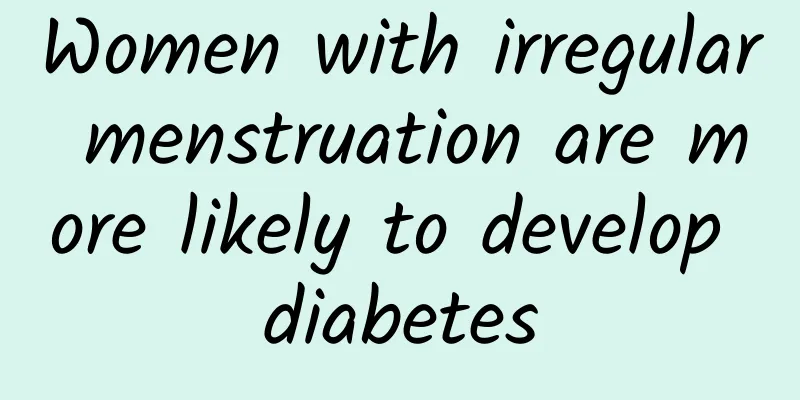What are the causes of uterine fibroids? Common hazards of uterine fibroids

|
Submucosal fibroids account for about 10% of uterine fibroids, that is, intramural fibroids grow in the uterine cavity and block the cervix or detach from the vagina. So, what is the cause of uterine fibroids? What are the hazards? As early as the early 1990s, Rein pointed out that somatic mutations are the starting events of fibroid formation. Somatic mutations include various chromosomal aberrations from point mutations to chromosome loss and gain. The first is somatic mutations of monoclonal origin, which provide selective growth advantages for mutant muscle cells, and the second is the rearrangement of various chromosomes associated with fibroids. Cytogenetics consistently confirms that uterine fibroids have abnormal chromosome structure. It is generally believed that 53.9% to 65.6% of uterine fibroid tissue culture are normal karyotypes, and 34.4% to 46.1% are non-random chromosomal abnormal karyotypes. It is currently believed that the transformation process from myometrial cells to fibroids may involve a complex interaction between somatic mutations of normal myometrium, sex hormones, and local growth factors. Sex hormones, including estrogen, progesterone, and many peptide growth factors, are considered to be regulators of fibroid growth and play an important role in the etiology of fibroids. What are the hazards of uterine fibroids? The hazards of uterine fibroids include excessive blood loss. Women with uterine fibroids may experience prolonged menstruation and increased bleeding, especially those who delay the disease without effective treatment. They may bleed heavily in a short period of time, leading to severe anemia, which is very harmful to body functions. The harm of uterine fibroids also includes miscarriage. In some patients, uterine fibroids cause the uterus to enlarge and bend, which can lead to miscarriage. If it is a submucosal fibroid, it will grow into the uterine cavity, causing female spasms and contractions, and miscarriage symptoms. Uterine fibroids may also affect the growth of implanted eggs and lead to miscarriage. |
<<: Causes of uterine fibroids Dietary care methods for uterine fibroids
Recommend
Nutritional supplements increase your physical strength so you can fight tigers next year! Reduce sugar intake to make your drink refreshing and less sweet, healthy and less burdensome
Are you a "foreigner" who is busy at wo...
What is the difference between miscarriage and abortion?
Miscarriage and abortion usually involve differen...
Nursing measures for pelvic peritonitis after surgery
We all know that the incidence of pelvic peritoni...
What is the main way to prevent cervicitis?
Among the many gynecological diseases, cervicitis...
What are the dangers of bacterial vaginosis?
In recent years, more and more female friends hav...
Cervical precancerous lesions specialist hospital
As a patient, the level of hospital experts is on...
What is endometrial tuberculosis?
What is endometrial tuberculosis? Endometrial tub...
Doubt! What are the symptoms of adnexitis?
What are the symptoms of adnexitis? Expert introd...
Contraindications for women with cervical erosion in medication Explain how women with cervical erosion can recover faster
In life, there are many ways to treat cervical er...
What are the key points for women to self-diagnose ovarian cysts?
Many patients with ovarian cysts do not pay much ...
Want to lose weight easily? Let’s change the order of eating first!
Everyone knows that dieting is not a healthy way ...
Stay away from the three highs by supplementing deep sea magnesium (Part 1)
Magnesium is one of the essential minerals for th...
What disease causes cervical erosion and herpes?
Cervical erosion with herpes is common in genital...
What are the hazards of threatened abortion that cannot be ignored?
Female friends should know the dangers of threate...
What Chinese medicine is used for sitz bath for Bartholin's gland cyst
For Bartholin's gland cyst, you can use Chine...


![[Video version] Xia Hui ~ Are these 3 foods more nutritious after being sprouted? One picture will tell you in seconds: eating this way can improve immunity and help metabolism](/upload/images/67dcfc621770e.webp)






